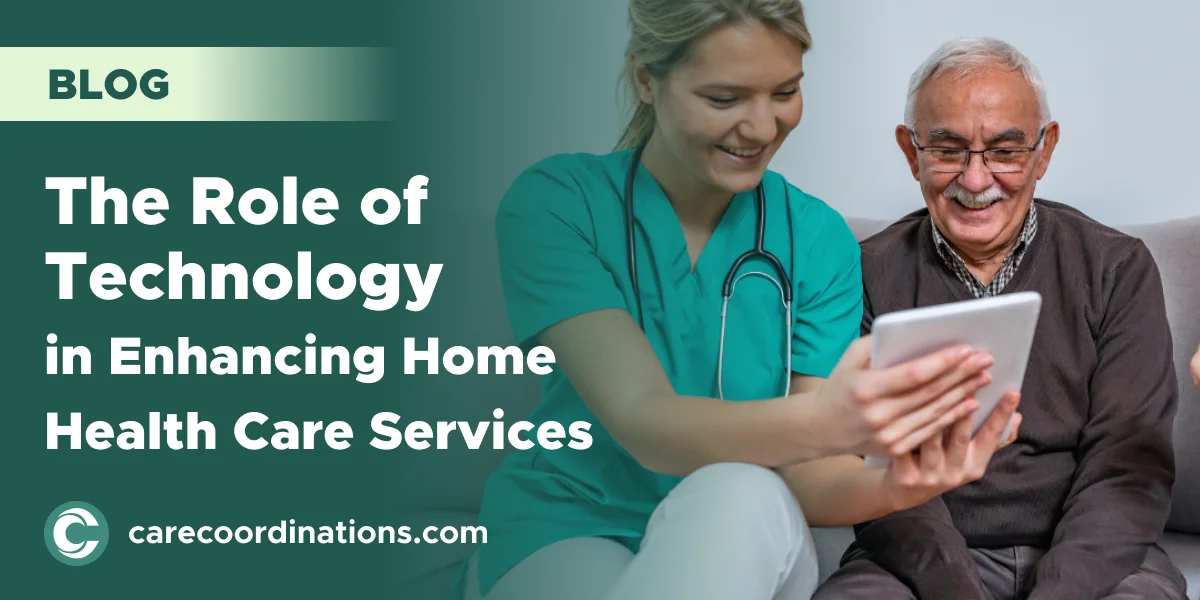The landscape of home health care has dramatically evolved, transitioning from traditional methods to a tech-driven paradigm. This shift reflects our growing reliance on technology in every aspect of modern life, including health care.
A survey found that 42% of respondents were delighted with telehealth services, and 36% were somewhat satisfied. This high level of satisfaction among users highlights the effectiveness and acceptance of telehealth in providing home healthcare services.
This blog will explore how cutting-edge advancements like telemedicine, wearable health monitors, and AI-driven diagnostics are revolutionizing patient care in the comfort of their homes.
We'll delve into these technologies’ transformative impact on patients and healthcare providers, highlighting the efficiency, accessibility, and personalization they bring to home healthcare services.
Telehealth: How Digital Consultations are Revolutionizing Home Health Care
Definition and Scope
Telehealth, a significant technological advancement in home health care solution, refers to delivering health-related services via digital platforms. This innovative approach encompasses a variety of services, including virtual consultations, remote monitoring, and digital diagnosis.
Benefits of Home Health Care
Telehealth shines particularly in home health care. It breaks down geographical barriers, providing crucial access to medical care for patients in remote areas. It offers unparalleled convenience and comfort for those needing regular monitoring or consultations, eliminating the stress of frequent hospital visits. Additionally, telehealth introduces a cost-effective model of care, reducing expenses associated with traditional clinic visits and making it a financially viable option for many.
Also Read: Managing LUPA in Home Health Care Under PDGM | Care Coordinations
Wearable Devices in Health Monitoring: What They Are and Why They Matter
Overview of Wearable Technologies
The landscape of wearable health technologies is rapidly expanding, encompassing devices like heart rate monitors and blood pressure cuffs. These gadgets are increasingly becoming an integral part of holistic health management. They seamlessly integrate with broader health systems, enabling data synchronization with electronic health records and telehealth platforms, providing a cohesive view of patient health.
Impact on Patient Care
Wearable devices revolutionize patient care by offering real-time monitoring and early detection of potential health issues. For instance, a smartwatch detecting irregular heart rhythms can prompt timely medical intervention. Such technology fosters patient engagement and self-management, empowering individuals to participate actively in their health journey. A notable case is the use of fitness trackers in cardiac rehabilitation programs, which have improved patient outcomes by encouraging physical activity and continuous health monitoring.
Advanced Health Information Systems: What They Are and How They Transform Patient Care
Electronic Health Records (EHRs)
EHRs revolutionize home health care by centralizing patient data, offering a comprehensive health overview at a glance. This integration significantly benefits both healthcare providers and patients. Providers gain immediate access to patient histories, improving diagnosis accuracy and treatment effectiveness.
Data Security and Privacy
In an era where data breaches are a genuine concern, protecting patient information is paramount. Robust security measures, including encryption and access controls, are essential in maintaining confidentiality. These practices safeguard sensitive data and bolster patient trust in-home healthcare services.
AI and Machine Learning: Why They're Game-Changers in Home Care
Integrating AI and machine learning in home health care is revolutionizing patient treatment.
Predictive Analytics
Predictive analytics, powered by AI, can now identify health trends and potential emergencies before they occur. This proactive approach enables early interventions, significantly improving patient outcomes.
Personalized Care Plans
Machine learning algorithms are instrumental in devising personalized care plans. By analyzing vast amounts of data, they can tailor treatments to meet the unique needs of each individual, enhancing the effectiveness of home care.
Challenges and Limitations
This technological leap comes with its challenges. Ethical considerations, particularly in decision-making autonomy and privacy, are paramount. Additionally, while AI has made significant strides, it still faces limitations in understanding complex human conditions, indicating a need for continuous improvement and human oversight of in-home healthcare services.
Also Read: Improving Accessibility For Home Health Care Recipients
Mobile Health Apps and Tools: How They Enhance Communication and Health Management
Apps for Health Management
Recent advancements in health apps have revolutionized home health care software solutions. These apps, celebrated for their user-friendly interfaces, offer a range of features from medication reminders to personalized health tips. They empower patients to manage their health effectively, enhancing the quality of home care.
Enhancing Communication
Communication tools have bridged the gap between patients and providers. These tools enable seamless, real-time conversations, ensuring patients receive continuous care and support. This constant connectivity is vital, fostering a comprehensive healthcare environment beyond traditional clinical settings.
Future Trends in Home Health Care: What Innovations to Expect Next
Exploring groundbreaking tech in-home care, blending cutting-edge tools with essential human compassion and connection.
Emerging Technologies
The horizon of home health care is brightening with groundbreaking technologies like Virtual Reality (VR), offering innovative solutions like VR-based pain management. These advancements promise to revolutionize patient experiences, making treatments more effective and less invasive.
The Potential Impact on Home Health Care
As we peer into the future, the fusion of technology and personalized care is set to redefine home health care. We anticipate a model where cutting-edge tools enhance efficiency and ensure that the irreplaceable human touch remains at the heart of care. This balance will be crucial in shaping a compassionate, tech-enhanced healthcare landscape.
Also Read: Crucial Role of Personalized Care in Home Health Care Services
Embrace the Future of Home Health Care: Discover How Technology Can Transform Your Care Experience
In exploring technology's transformative impact on home health care solutions, we've witnessed its pivotal role in advancing care quality and accessibility. From telehealth advancements to wearable tech, technology is a tool and a bridge connecting patients to more personalized, efficient care.
As we look forward, the intersection of technology and healthcare promises a future where home-based care is more effective and empathetic, aligning closely with the human touch at the heart of all home healthcare services.


